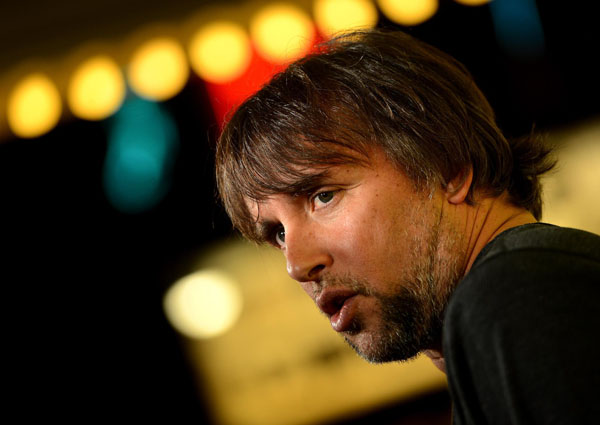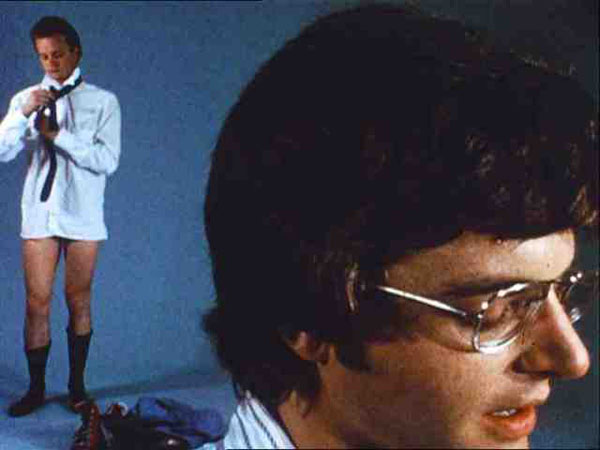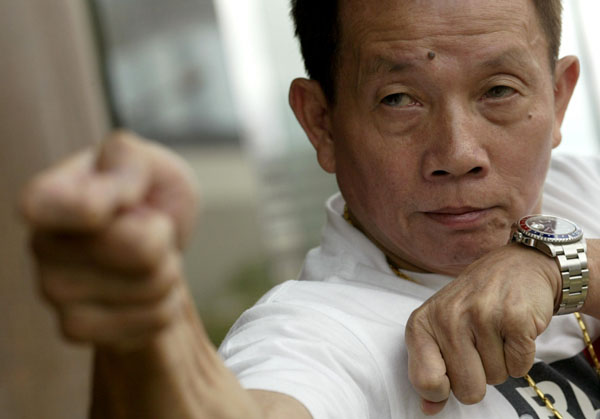“So here’s why I consider Richard Linklater the most important filmmaker of his generation.” Contrasting Linklater’s work with that of other directors often lumped in with the so-called “VHS Generation”—Quentin Tarantino, Paul Thomas Anderson, Robert Rodriguez, and Kevin Smith—Michael Smith elaborates on his three reasons: “His work is more profitably rooted in a specific sense of place…. He is the most knowledgable about film history while simultaneously the least likely to show off his cinephile cred…. He is the most formally innovative director of his generation.”
“One of the most thrilling aspects of digging through cinema history is discovering all of the brilliant ideas that never got pursued or developed—flourishes that still seem arresting and singular today. Even a silent film as well known as 1920’s The Cabinet of Dr. Caligari, which has justly been acknowledged as the visual forebear of everything from The Third Man to Batman Returns, has the capacity to surprise—and not just in the mildly respectful, oh-that’s-where-that-came-from sense.” Mike D’Angelo elaborates at the AV Club—and there’s a clip (4’48”) from Robert Wiene‘s classic as well.
“America may be nearing peak ’90’s nostalgia,” writes Patrick St. Michel for the Atlantic. “But to see what a real ’90s revival looks like, head to Japan. There, the blockbuster entertainments of 13 to 23 years past are making a major, profitable comeback at all levels of culture—movies, music, TV. Dragonball Z: Battle of the Gods, the first film of the DBZ anime franchise since 1996, dominated the box office this spring, selling more than a million tickets in six days and pulling in $32 million more than its projected gross. It followed on the heels of the rebooted Neon Genesis Evangelion films (based on an animated TV show that ran from 1995 to 1996), the fourth of which nabbed the highest opening-weekend box office haul of 2012…. The country’s unique social history and current financial stagnation created the conditions for a nationwide cultural rewind to the end of 20th century, which serves to remind natives and gaijin alike just how much economic conditions affect mass entertainment.”
New York. Tomorrow, Light Industry will present Anthony McCall and Andrew Tyndall’s Argument (1978), which “raises the question of how an effective form of political cinema could emerge at a moment when filmmakers were divided between two seemingly incommensurate tendencies: on one hand, the desire to promote the views of the left to as wide an audience as possible through the vehicle of mass-produced, Hollywood-style narratives; and on the other, the avant-gardist insistence that a truly radical practice must reject conventional form in favor of a deeper investigation of both perception and representation.”
Paris. On Wednesday, the Librairie du Cinéma du Panthéon will host a reading, Q&A, and party to celebrate the release of Karina Longworth‘s book, Al Pacino: Anatomy of an Actor.
Bologna. From Il Cinema Ritrovato, Lukas Foerster posts notes on Sotoji Kimura’s Ani imoto (1935), which “functions as a fallen woman melodrama” while laying bare “some social foundations of the genre”; Mikio Naruse’s Sakasu goningumi (1935), a “smart film” about, among other things, “the coming of sound”; and Allan Dwan‘s Silver Lode (1954), “a masterpiece.” Meantime, Bart Versteirt sends a first dispatch into Photogénie.
In the works. “Peter Gabriel is composing music for Words of Gods, a collaboration of nine religion-themed shorts from renowned international directors.” Among them: Emir Kusturica, Hideo Nakata, and Bahman Ghobadi. John Hecht has more in the Hollywood Reporter.
Obits. “Karate champ and film star Jim ‘the Dragon’ Kelly has died of cancer at the age of 67,” writes Marc Campbell at Dangerous Minds. “Six foot two with an explosive Afro, Kelly made an indelible impression in 1973’s Enter the Dragon by holding his own against the film’s massively charismatic star Bruce Lee. Kelly’s character, Williams, was somewhat of a symbol of the Black Power movement in America at the time and Kelly’s look, defiant demeanor and no bullshit attitude fit the role perfectly.”
Last week, we passed along word that we’d lost Lau Kar-leung, aged 76, and now let’s add that, in the Notebook, the Ferroni Brigade begins its appreciation by declaring that “one of the great chapters of Hong Kong cinema [has come] to a close. Justly famous as martial arts choreographer and action director for many kung fu and wu xia films—the last was Tsui Hark‘s Seven Swords (2005), in which he also acted—Lau was also one of the outstanding filmmakers of Hong Kong cinema.” At the AV Club, Ignatiy Vishnevetsky adds that “Lau helped define the look and tone of the martial arts genre, combining authentic martial arts styles with a sense of good-natured showmanship and humor…. Lau began directing in 1975, and in had one of his biggest successes in 1978 with The 36th Chamber of Shaolin, starring his childhood friend Gordon Liu…. Perhaps no film better showcases Lau’s mix of humor and martial arts than the sublimely cartoonish wuxia comedy Dirty Ho (1976), also starring Liu. Lau’s filmography includes such genre classics as Mad Monkey Kung Fu (1979), Return to the 36th Chamber (1980), My Young Auntie (1981), Legendary Weapons of China (1982), Eight Diagram Pole Fighter (1984) and Legend of Drunken Master (1994), starring Jackie Chan—a sort of spiritual disciple of Lau’s light-hearted, technical brand of martial arts choreography.”
More browsing? Mike Everleth has this week’s “Underground Film Links.”
For news and tips throughout the day every day, follow @KeyframeDaily on Twitter and/or the RSS feed. Get Keyframe Daily in your inbox by signing in at fandor.com/daily.






